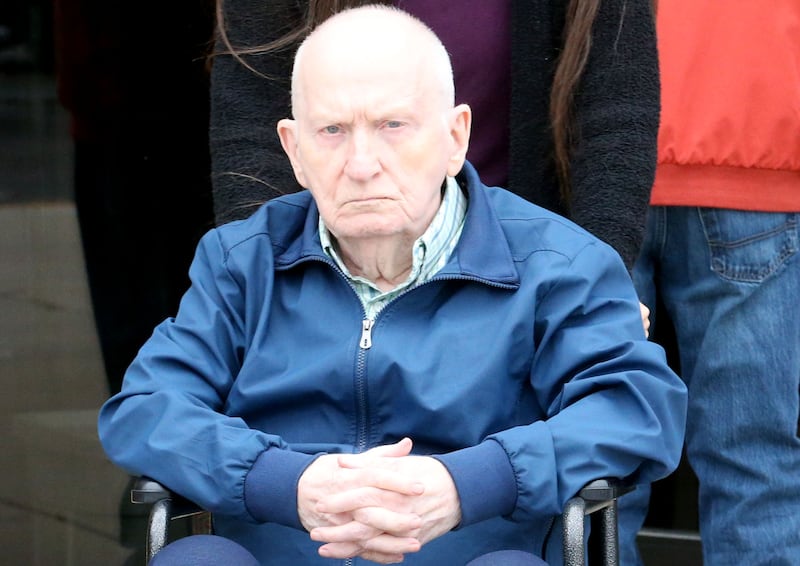Chester Weger’s murder conviction stands. On Wednesday, a judge denied the 86-year-old’s bid for exoneration in the Starved Rock murders.
La Salle County Judge Michael C. Jansz read aloud a written ruling that spanned most of an hour. One by one, Jansz shot down each of Weger’s witnesses and major pieces of evidence as “not reliable,” “hearsay” or “inadmissible.”
Jansz also noted a thread: Many of the witnesses to emerge with seemingly new information did so in recent years and after a social media explosion of information about the 1960 murders.
“All of this causes the court to question the source of the witnesses’ testimony,” Jansz said.
Weger, who was paroled in 2019 but remains convicted of murdering Lillian Oetting, one of three women found fatally bludgeoned in the park, was not present for Wednesday’s ruling. Weger has been absent from recent proceedings, including what his team termed “a mini-trial” held in May.
Four attorneys from the special prosecutor’s office left Jansz’s courtroom immediately after Wednesday’s ruling and without comment. In a press release issued Thursday, Will County State’s Attorney James Glasgow, whose office acted as special prosecutor, praised his staff -- including assistant state’s Attorneys Colleen Griffin, Christopher Koch, and Jon Walters -- “who spearheaded the 54-month long investigation with extensive research, discovery, briefings and litigation.” Glasgow named additional staff members who “worked diligently for 4.5 years reviewing the evidence from the original prosecution and all of the materials provided by Weger’s attorneys during the lengthy post-conviction process.”
After the hearing, Weger attorney Andy Hale said they would appeal.
“The fat lady hasn’t sung,” Hale said.
Jansz opened his ruling by noting the fact that Weger repeatedly appealed his case and/or filed post-conviction actions long before this newest attempt to overturn his murder conviction.
:quality(70)/cloudfront-us-east-1.images.arcpublishing.com/shawmedia/GT2GVRZRP5EVVN37ZBX7YR7VOY.jpg)
The judge then revisited testimony from almost a dozen witnesses who emerged with statements or information suggesting that Weger was innocent or framed.
Roy Tyson, for example, testified to a long-ago conversation with the late Harold “Smokey” Wrona in which Wrona admitted to helping plan a murder and dispose of bodies at the request of unnamed members of a mob.
But Jansz ruled that Tyson’s statements were not credible. Tyson, he said, became “notably defensive” and injected opinion under cross-examination. As for Wrona, the judge ruled, the statements he told Tyson didn’t add up. Why, for example, would the mob need help in disposing of a body, or bodies, and why do so in a heavily visited state park?
Jansz also made quick work of statements from Randy Reynolds, James Woods and Melissa Smith. The former two heard former investigators disavow Weger’s involvement; but Jansz found both of their statements were “not believable” or “speculative.” Smith had testified to a deathbed confession by her grandfather, who admitted complicity in the murders, but this, too, Jansz found “not credible.”
The judge also concluded that DNA evidence from a hair at the crime scene did not overcome the results of Weger’s first trial. The hair in question came from a glove on murder victim Frances Murphy (Weger was convicted of killing Oetting) and its DNA was found not to be Weger’s but instead linked to one of three brothers in the Utica area.
“The biggest concern is the manner in which the hair was collected,” Jansz ruled, saying that the chain of custody wasn’t clear enough to show where the hair had come from.
He further noted one of the Utica brothers had died the same day, and his death certificate was signed by the same deputy coroner as the murder scene – an observation suggesting that there could have been cross-over evidence between crime scenes.

:quality(70)/s3.amazonaws.com/arc-authors/shawmedia/638ad18c-1176-4018-bcef-b5560cf36d58.png)